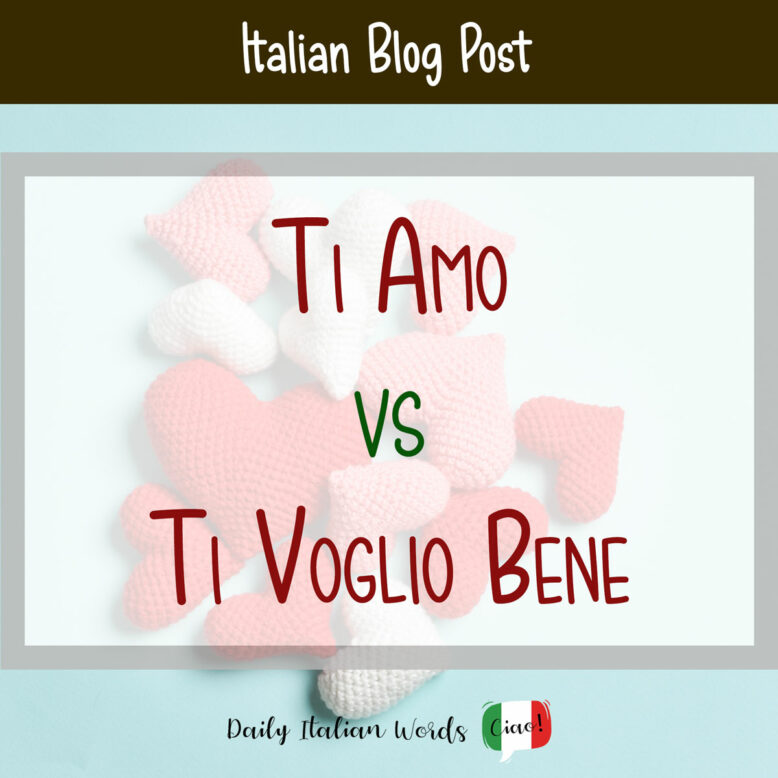In English, the phrase I love you is extremely flexible. It can be used not only towards a lover or a person you’re in love with, but also family members, your children and even really good friends.
In Italian however, there are two different phrases that equate to I love you and learning how they differ is extremely important.
1) Ti amo
2) Ti voglio bene

Ti amo is used towards someone with whom you have a romantic and/or sexual relationship. Because it is a strong statement, it is best to use it with someone you’ve been intimate with for quite some time rather than someone you’ve only been dating for a few weeks – unless you want him or her to run for the hills!
Ti amo più di ogni altra cosa al mondo!
I love you more than anything else in the world!

Ti voglio bene, on the other hand, places emphasis on the tender and affectionate feelings you have for the other person, without any sexual or deeply romantic undertones. For this reason, it is used more often towards siblings, parents, children and friends than between couples in a committed relationship.* It is also the safer option if your relationship is brand new or not very serious.
Ti voglio tanto bene, figlio mio.
I love you very much, my son.

A good example phrase that juxtaposes the two expressions is ti voglio bene ma non ti amo. The implication is that although you are fond of the person in question and perhaps even care about them deeply, you aren’t physically attracted to them and wouldn’t want to be in a relationship with them.
Ti voglio bene ma non ti amo.
I am very fond of you but I don’t love you.
*Note: It is possible to use the phrase ti voglio bene towards a romantic partner but it is commonly reinforced with the adverb tanto and followed by a term of endearment such as amore mio (my love).
Ti voglio tanto bene, amore mio! = I love you very much, my love!
Be aware that if all you ever say is ti voglio bene to your partner, they might start to think that you are no longer in love with them!
One exception to the rule is your children. It is not uncommon to hear parents say ti amo or ti amo tanto, especially if the kids are very young. As they grow up though, ti amo gets replaced by ti voglio bene or ti voglio tanto bene.

You may even hear a person saying ti amo in a baby voice to their beloved pet!
Heather Broster is a graduate with honours in linguistics from the University of Western Ontario. She is an aspiring polyglot, proficient in English and Italian, as well as Japanese, Welsh, and French to varying degrees of fluency. Originally from Toronto, Heather has resided in various countries, notably Italy for a period of six years. Her primary focus lies in the fields of language acquisition, education, and bilingual instruction.


